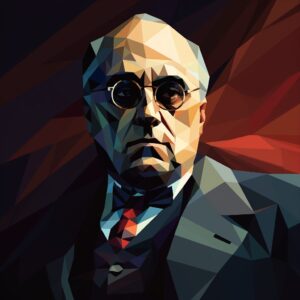Paul Watzlawick Quotes
- Psychotherapist and communication theorist
- Austria
- 1921
Paul Watzlawick was an Austrian-American psychologist and philosopher known for his contributions to the field of communication theory. He is best known for his work on the theory of pragmatics, which explores how people use language and nonverbal cues to create meaning in their interactions. Watzla…Read More
Paul Watzlawick was an Austrian-American psychologist and philosopher known for his contributions to the field of communication theory. He is best known for his work on the theory of pragmatics, which explores how people use language and nonverbal cues to create meaning in their interactions. Watzlawick also emphasized the importance of context and the role of paradox in communication. His notable works include “Pragmatics of Human Communication” and “How Real is Real? Confusion, Disinformation, Communication.” Watzlawick’s ideas have had a significant impact on fields such as family therapy, organizational communication, and cybernetics. He is considered a pioneer in the study of communication and his work continues to be influential in various disciplines.Read Less
Paul Watzlawick was an Austrian-American psychologist and philosopher known for his contributions to the field of communication theory. He is best known for his work on the theory of pragmatics, which explores how people use language and nonverbal cues to create meaning in their interactions. Watzlawick also emphasized the importance of context and the role of paradox in communication. His notable works include “Pragmatics of Human Communication” and “How Real is Real? Confusion, Disinformation, Communication.” Watzlawick’s ideas have had a significant impact on fields such as family therapy, organizational communication, and cybernetics. He is considered a pioneer in the study of communication and his work continues to be influential in various disciplines.
3 Insightful Paul Watzlawick Quotes
Paul Watzlawick Career Highlights
- Watzlawick received his doctorate in philosophy from the University of Vienna in 1949.
- He worked as a research associate at the C.G. Jung Institute in Zurich, Switzerland, from 1957 to 1960.
- In 1960, Watzlawick joined the Mental Research Institute (MRI) in Palo Alto, California, where he worked for over 30 years.
- He became the director of MRI’s Communication Research Institute in 1969 and held this position until his retirement in 1990.
- Watzlawick was a professor at the University of California, Santa Cruz, and Stanford University, where he taught courses on communication theory and psychotherapy.
- He published over 150 articles and 22 books, including the influential book “Pragmatics of Human Communication” (1967), which he co-authored with Janet Beavin Bavelas and Don D. Jackson.
Key Contributions by Paul Watzlawick
- Watzlawick’s most significant contribution was his work on the theory of pragmatics, which focuses on how people use language and communication to create meaning and understanding.
- He also developed the concept of “interactional patterns,” which refers to the repetitive ways in which people communicate and interact with each other.
- Watzlawick’s work on communication theory has been influential in fields such as family therapy, organizational communication, and media studies.
- He was a pioneer in the field of brief therapy, which focuses on finding solutions to problems in a short period of time.
- Watzlawick’s research on the double-bind theory, which explores the effects of contradictory messages in communication, has been widely cited and studied.
What Sets Paul Watzlawick Apart
- Watzlawick’s interdisciplinary approach to communication theory, drawing from fields such as psychology, linguistics, and cybernetics, set him apart from other theorists of his time.
- He was known for his clear and concise writing style, making his work accessible to a wide audience.
- Watzlawick’s emphasis on the importance of context and the role of nonverbal communication in understanding human interaction was groundbreaking in the field of communication theory.
Takeaways
- Watzlawick’s work has had a significant impact on the field of communication theory and has influenced various fields such as psychology, sociology, and linguistics.
- His theories and concepts continue to be studied and applied in various contexts, making him a highly influential figure in the field of communication.
- Watzlawick’s interdisciplinary approach and emphasis on practical applications make his work relevant and valuable for both academics and practitioners.



